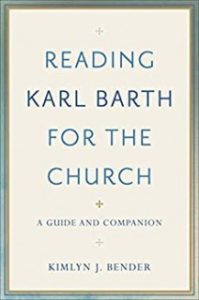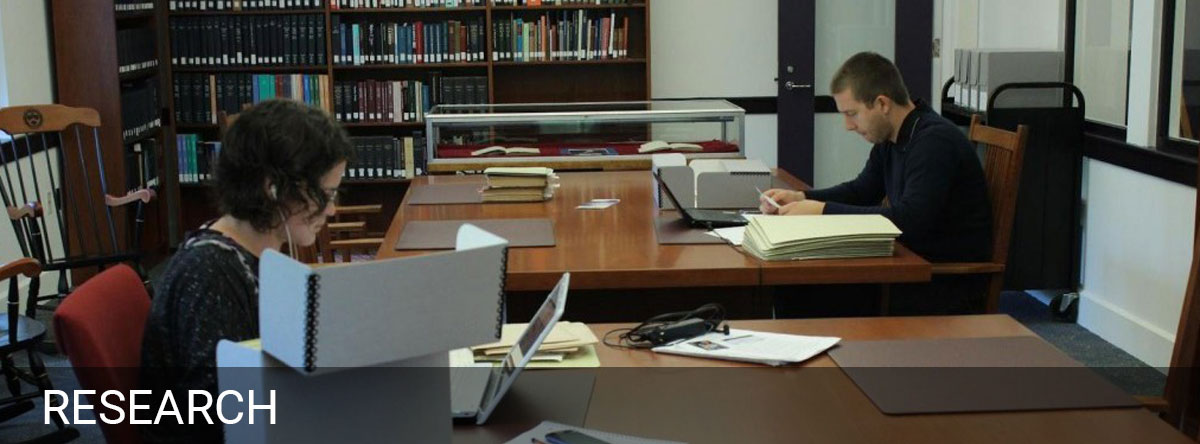 Reading Karl Barth for the Church
Reading Karl Barth for the Church
Kimlyn Bender. Reading Karl Barth for the Church (Grand Rapids, MI: Baker Academic, 2019), 321 pp. $26.99 (paperback).
Reviewed by Blair Bertrand (April 30, 2020)
While nearing the end of Kimlyn J. Bender’s new book Reading Karl Barth for the Church, a pastor friend posted on social media that he was reading Barth’s Church Dogmatics I/1 (hereafter CD). This is significant for two reasons. The first is that my friend is exactly the audience Bender imagines. Bender writes not for “specialists in Barth studies but for those pastors, students, and other Christian persons who are beginning to approach [Barth’s] CD” (xx) and to “assist others in discovering a theology that was intended for them all along” (xxi). Bender focuses his whole book on CD I/1; perfect for my friend.
Bender’s approach to this audience is different than other well-known “introductions” to Barth. For instance, Eberhard Busch’s The Great Passion (Eerdmans, 2010) introduces us to Barth through biography while David Guretzki’s An Explorer’s Guide to Karl Barth (IVP Academic, 2016) gives a broad survey. Both attempt to provide a broad picture of Barth’s theology that helps the reader when they approach a particular text in Barth’s corpus. In contrast, Bender does not attempt a summary of Barth before looking at a specific text. Rather, he invites the reader into a close reading of CD I/1. In contrast to the deductive approach of laying out motifs or establishing an overall framework before reading the text, Bender provides an inductive approach. He cumulatively builds up the knowledge and skills required to navigate Barth’s CD I/1 by reading it alongside the reader.
What follows, after a brief introduction, are nine chapters that provide a “summary and explanation [that] illumine the meaning of the content in each section” (3) of CD I/1. The intention is that the reader will have CD I/1 in one hand and Bender’s book in the other. Helpfully, Bender provides brief summaries of key arguments, condensing 3 or 4 pages into a few lines, so that the reader understands what they are reading in Barth’s CD. This format goes beyond Geoffrey Bromiley’s wooden summaries in Introduction to the Theology of Karl Barth (T & T Clark, 2000), in part because Bender is not summarizing the entire CD and so has more space to elaborate on Barth’s arguments. As his readers might expect of a systematic theologian, Bender is adept at using certain motifs and frameworks to understand Barth’s theology and then helpfully points to them when it illuminates a part of Barth’s text. For instance, Bender will interpret a particular section of the CD in light of the context of the entire work. This is a skill that a new reader to Barth does not have, but these contextualizations are helpful to understand the significance of a given passage. In general, these contextualizations do not fall into academic debates, but rather push the reader deeper into Barth’s argument.
This textual guidance is occasionally interrupted by excursus on important topics. For instance, in chapter 2 which treats §§1-2, Bender outlines the theologians who Barth is in conversation with in an excursus titled, “Evangelical Dogmatics in Opposition to Two Rival Traditions.” For an audience not versed in the history of Roman Catholicism or liberal German Protestantism, this is a helpful guide. Each chapter also contains a commentary in which Bender selects some dominant themes or ideas and then relates them to contemporary concerns and debates. In an age with a resurgence of nationalism in a pluralist world, Bender’s commentary on “The Relation of Jesus Christ, the Holy Spirit, and Other Spirits” and “Revelation and Religion, Christianity and World Religions” (both found in Chapter 8 – “The Outpouring of the Holy Spirit”) seem apt and appropriate. Finally, each chapter ends with “Questions for Reflection.” At times, these seem overly didactic, but readers should find at least one or two of them to be profitable.
The second significance to my online interaction with my friend mentioned at the beginning of my review is that he found out about this book through social media. After graduating from seminary over a decade ago, my friend is no longer connected to the academy. He may have discovered Bender’s book, eventually, perhaps, if he attends a Barth Center conference but by then the moment of his need would likely have passed. Luckily for Bender and for Baker Academic, I was able to point my friend to this book right when it was relevant for him. The fact remains that while Bender writes to bridge a gap between the high culture of Barth’s theological edifice and the low culture of pastors and lay theologians, the academy and the publishing industry struggle to do the same.
For instance, the eight endorsements on the back of the book are all by established academic white men, the majority of whom are closer to retirement age than not. They are all well-esteemed Barth scholars whose endorsements carry a lot of weight within Barth studies. However, the intended audience of this book is not Barth studies, but the church. Baker’s decisions in this respect have not aided Bender in trying to temper the perception that Barth is only of interest to white men within the field of systematic theology. All of this is ironic given Bender’s stated purpose and the content of his book. contemplations.
The very title of the book, Reading Karl Barth for the Church, hints at this divide between the academy and the church the Bender seeks to bridge. The “for” could either be interpreted as “alongside with” or “on behalf of.” The first interpretation, which is what Bender hopes to do, is best understood when seen in contrast with other options available to his audience. Bender is not reading Barth for the academy or systematic theology; he is reading Barth for the church. The book then becomes a way of opening a text for its originally intended audience, the church, over and against the ways that it has often been read. Bender largely succeeds at this task except when the second interpretation of “for” is employed.
The second interpretation, “on behalf of,” is the equivalent of saying to someone, “Let me do this for you.” This interpretation takes agency away from a person and places it in the hands of the competent expert. In this case, the danger is that agency is taken away from Bender’s audience, the church and those who pastor it, and places it in the hands of the academy. The problem that I am identifying is not rooted in the expertise of a scholar like Bender. While Barth warns in CD I/1 that theology is too valuable to be confined to systematic theologians, thereby opening a space for Biblical and practical theology, he recognizes that there is a vital role to be played by systematic theology in the life of the church. Namely, systematic theology is to ensure the truth of the church’s proclamation, and this task requires expertise. The problem arises when such expertise assumes an authoritative and normative stance to Barth interpretation, centering systematic concerns and ways of thinking to the exclusion of other ways.
Bender, who is an expert in Barth studies writing for non-experts, treads a fine line: He cannot oversimplify Barth’s theology, but he must also simplify Barth’s theology for his intended audience. This difficult task proves to be a constant struggle, which is discerned most clearly in Bender’s prose. It is possible for an author to be clear while illuminating difficult and dense material. Bender is often clear and illuminating but his prose can also be difficult at times. Take a random sentence from Bender’s book and its meaning will be clear, which makes Barth’s theology easier to understand. This same sentence, however, will also use technical theological terms to condense a page or more of Barth’s text. Bender’s prose is an improvement to most obscure academic writing. But, and this is the problem, Bender’s writing is still too academic in the end. Someone with little theological training will struggle with the prose at different points and this will ultimately hinder them from understanding Bender’s insights. Perhaps this outcome is unavoidable given the source material, but it does make Bender’s book a demanding read for the novice to Barth’s theology.
Perhaps a specific example will make my observation and critique of Bender’s writing clearer. In remarking on paragraph §14 “The Time of Revelation,” Bender rightly notes that this section “is without question one of the most difficult segments of the first volume of the CD” (138). What makes this paragraph in the CD so difficult is that we normally think of God’s revelation as an event that happens in space but neglect that this event also happens in time. We can somewhat understand the fact that the God “out there” becomes the God who is now “down here” in Jesus Christ, all while not ceasing to be God. The language that we use is spatial – out there, down here – and close to our real life. The concept of time is more abstract. To help pastors or students understand this particular part of the CD more easily, it would be helpful to interpret Barth’s argument for the reader in a different rhetorical style than what Barth himself employs. Specifically, in this section but not exclusive to it, neither Barth nor Bender employ metaphors, similes, images, or analogies. Each of these interpretive devices helps to bridge the unknown to the known in ways that description, explication, and commentary may not. These devices are the basic tools of preachers and congregants, as they are how we talk and think in our daily lives. To make a more meaningful connection with these audiences, Bender needs to draw on his pastoral skills at times more than his systematic theology training. Bender has written a good, clear book of systematic theology, but there are few rhetorical devices employed within this book to make it accessible enough to those who do not think or write in the same way as Barth or other systematic theologians.
I know that my friend bought Bender’s book. I wonder if he found it beneficial? There is a good chance he did, but I guess I will have to log on to our shared social media connections and find out.
Rev. Dr. Blair D. Bertrand, Lecturer, Zomba Theological College, Zomba, Malawi
The views expressed here are strictly those of the author; they do not necessarily represent the views of the Center for Barth Studies or Princeton Theological Seminary.


